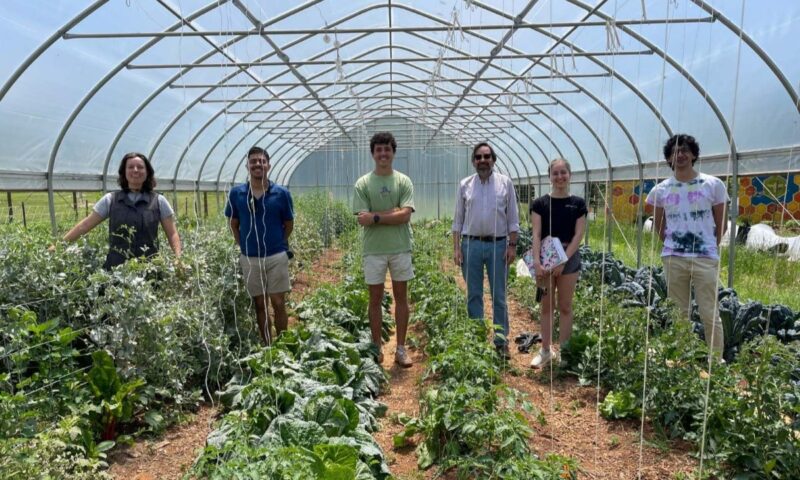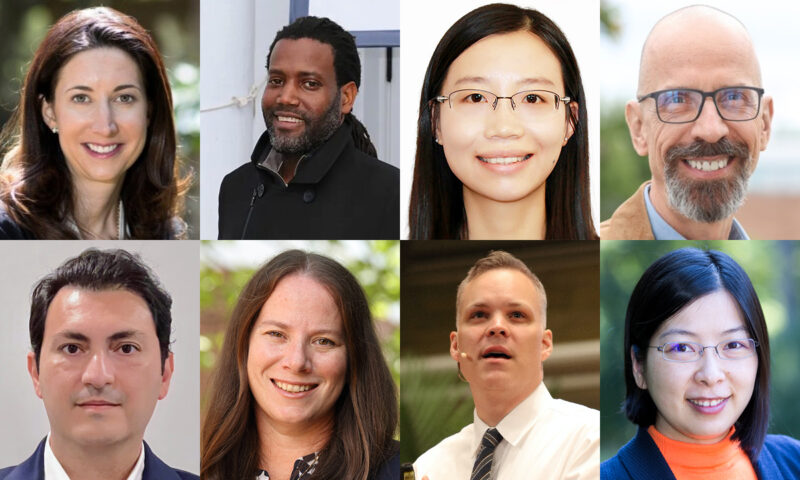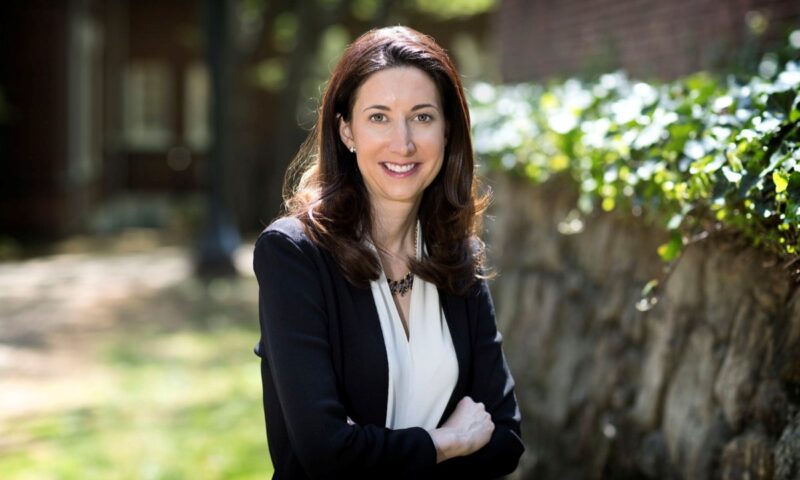For his contributions made with the “Financial Crisis Team,” McIntire School of Commerce Professor David C. Smith has received a 2019 Collaborative Excellence in Public Service Award from UVA’s Office of the Executive Vice President and Provost.
The group award recognizes the significant influence that the Virginia Bankers Association Professor of Finance and a “pop-up interest group” composed of Smith and his UVA colleagues Bob Bruner, David Leblang, Julia Mahoney, and Pedro Matos had on how scholars and the general public view the financial crisis that began 10 years ago.
Smith and his team were chosen by their peers and community members for their work that spearheaded a sprawling collaborative project, “A Ten-Year Retrospective on the Financial Crisis of 2008.” The interdisciplinary collection of conferences, courses, speakers, and writings focused on lessons learned in the decade since the crisis, what has been fixed, and what remains to be improved.
Initiatives included “The Financial Crisis of 2008 Ten Years Later: Politics, Markets, and Institutions,” a course offered in fall 2018 notable for its unique content and for being the only class offered across four different academic units: the McIntire School of Commerce, the Darden School of Business, the College of Arts & Sciences, and the Frank Batten School of Leadership and Public Policy.
In advance of the celebration dinner April 24, when Smith and his team will be recognized, we spoke to him about the group, its impact, and his plans for further scholarship on the issue.
How did the interdisciplinary nature of the “pop-up interest group” support your individual research efforts studying the 2008 financial crisis?
My past research has focused on earlier crises, including the Japanese and Scandinavian financial crises from the late 1980s and early 1990s. The opportunity to teach the interdisciplinary class allowed me to revisit some of the issues and literature that I studied in my earlier work, but with a fresh perspective and some great colleagues to learn from—including my co-teachers Bob Bruner and David Leblang and also Pedro Matos and Julia Mahoney.
How do you feel the Financial Crisis Team’s efforts helped to create the kind of positive impact acknowledged by the Provost’s award?
Well, first, I think it was important to revisit the absolute importance of the Financial Crisis of 2008 and the impact it had on global financial markets, the economy, and society at large. Students in our course were young at the time of the crisis—like 10 years old for our undergrads and 13-15 years for our grad students. Most were too young to absorb what was going on at the time, and few courses exist now that teach about the crisis. Moreover, even those of us old enough to remember the crisis seem to forget quickly how bad it really was.
Second, I think the Financial Crisis Team members recognized that the political and economic environment we have today is a product of the 2008 financial crisis and its aftermath. To understand our current political environment, including the global rise in populist and nationalist tendencies, we really need to go back to the causes and consequences of the 2008 financial crisis. Finally, we all believed that the only way to prepare for the future is not to forget the past.
What collaborative research on the subject are you looking forward to undertaking in the future?
For starters, Bob Bruner, David Leblang, and I are planning to teach a permanent version of our cross-disciplinary course. The class will mirror our pop-up class in that it will invite students from a wide variety of disciplines across Grounds, but it will be larger, on the order of 70-90 students. The course, which will be taught for the first time during the spring 2020 semester, will focus on the historical connections between political institutions—in particular, the rise of democracy—and financial markets. We will explore these connections in the context of big technological upheavals, “industrial revolutions,” which typically are followed by large financial booms, busts, and often big political changes.
Bob, David, and I are also developing a research agenda that explores the relationships between these three occurrences—industrial revolutions, finance, and political change—from a political economy perspective. We are hoping to produce research that is publishable in top academic journals as well as useful to policymakers and professionals.



